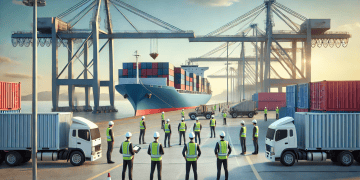In response to increasing global scrutiny on forced labor practices, new regulations are set to significantly impact supply chains that fail to meet ethical labor standards. These regulations, aimed at addressing concerns over human rights abuses, will empower authorities to block shipments originating from supply chains implicated in forced labor.
Under these stringent measures, authorities will closely monitor supply chains, ensuring adherence to international labor standards. This move comes amid rising awareness and public outcry over the use of forced labor in various industries worldwide.
The regulations are poised to reshape global trade dynamics, emphasizing transparency and ethical practices across supply chains. Stakeholders across industries are urged to comply with these regulations to avoid disruptions in their shipping activities and uphold ethical standards in their operations.
These developments underscore a growing global consensus on the need for responsible sourcing practices and the protection of human rights within supply chains. As enforcement of these regulations begins, businesses are encouraged to proactively review and adjust their supply chain practices to align with international norms and expectations.
Stay current with supply chain report news at The Supply Chain Report. For international trade resources, visit ADAMftd.com.
#ForcedLaborRegulations #EthicalSupplyChains #HumanRights #SupplyChainTransparency #GlobalTrade #ResponsibleSourcing #LaborStandards #HumanRightsAbuses #EthicalPractices #SupplyChainCompliance #TradeDynamics #InternationalNorms #ShippingDisruptions #ForcedLaborAwareness #SupplyChainEthics















